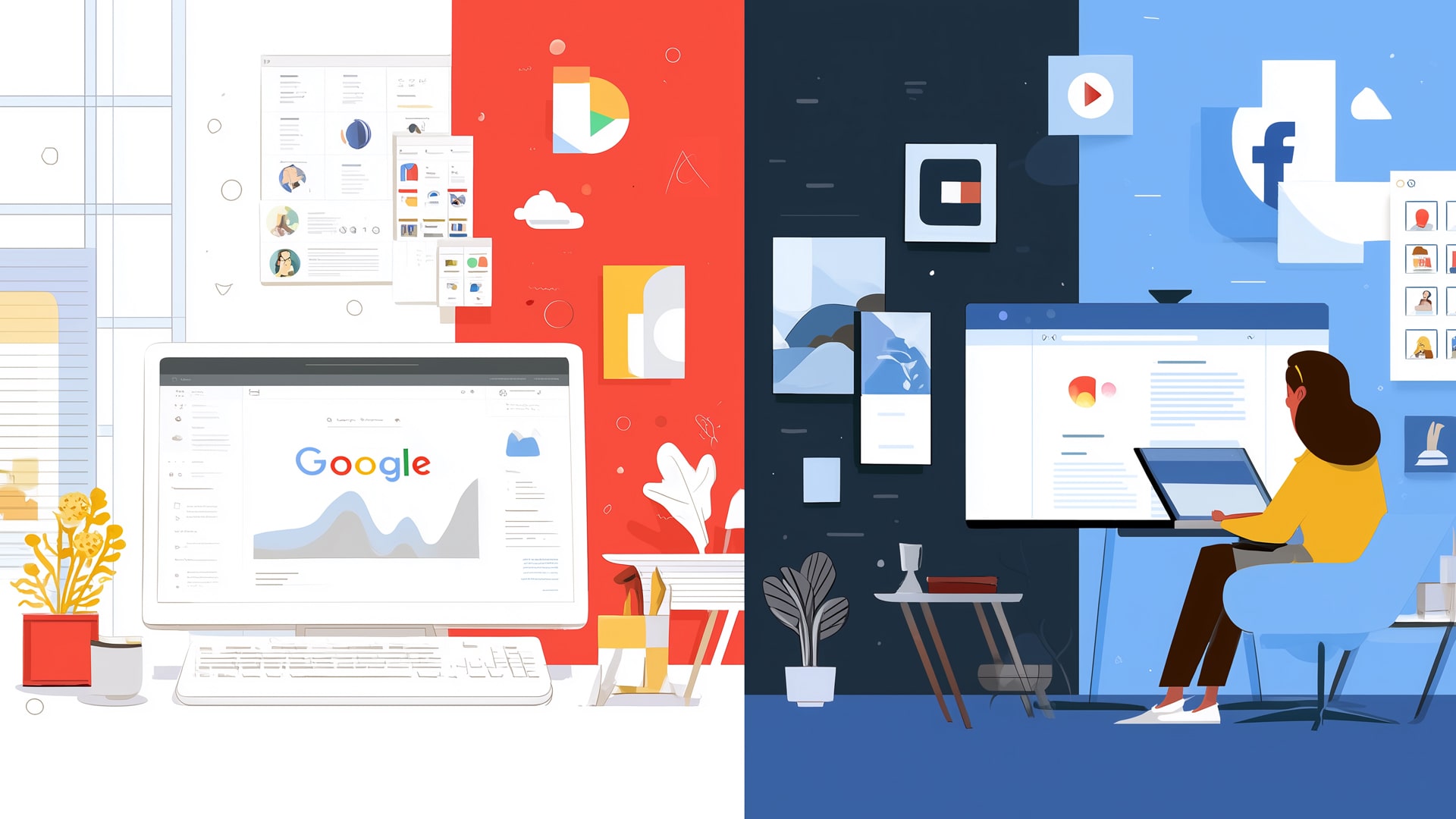- Google Ads
- Facebook Ads
- Digital Marketing
- 04.25.2025
Facebook vs. Google: Which Ad Platform Will Supercharge Your Digital Marketing?

Effective advertising is pivotal for businesses aiming to expand their reach and engage customers in today's digital-first world. Among the vast array of platforms available, Facebook Ads on Meta and Google Ads stand out as two dominant forces in digital marketing. In this blog, we’ll explore the key differences between these platforms, drawing from insights our digital advertising team shared during a recent strategy session.
Understanding the Power of Digital Advertising
The essence of digital advertising lies in connecting with the right audience at the right moment. Facebook Ads leverage social networks to deliver highly targeted content, making them ideal for building brand awareness and engagement. In contrast, Google Ads can focus on user search intent—connecting businesses with customers looking for specific products or services.
Facebook Ads on Meta: Building Connections through Engagement
Facebook Ads utilize detailed targeting options based on user behavior, interests, and demographics. These ads allow businesses to build specific audiences and launch personalized campaigns that drive engagement. For brands focused on top-of-funnel strategies, Facebook provides a powerful space for discovery.
For instance, a recent campaign expanded brand awareness by broadening the target audience on Facebook, which opened the door to cross-channel engagement that would have otherwise been out of reach.
With visually rich formats like carousel ads, video content, and immersive stories, Facebook is well-suited for creative messaging that resonates with users during the awareness and consideration phases of the buyer journey.
Google Ads: Capturing High-Intent Customers
Google Ads, on the other hand, are highly effective at converting demand into action. By targeting users actively searching for products or services, Google Ads offers a more direct path to conversion. Campaigns rely on keyword targeting to align ad placements with user search intent.
Although the cost per click can be higher—especially in competitive markets—this reflects the platform’s ability to attract users who are closer to making a purchase. For example, someone searching for “buy a new console boat” is likely much further along in the buying process than a user scrolling through social media content.
Bridging the Gap: The Role of AI
Both platforms are incorporating artificial intelligence to enhance ad performance and automation. Google Ads uses machine learning tools like responsive search, responsive display, and Performance Max to dynamically test and serve creative variations, optimizing based on real-time performance data.
Similarly, Facebook is implementing AI to refine audience targeting and ad placements, making reaching the most relevant users easier with impactful messaging.This blend of automation and strategy helps advertisers boost efficiency and campaign results.
Integration for Success: Using Both Platforms
The key takeaway is that Facebook Ads on Meta and Google Ads serve different but complementary roles. Facebook excels in awareness and engagement, while Google drives action from users with high purchase intent.
When budget allows, combining both platforms creates a holistic marketing strategy that covers the entire customer journey—from discovery to decision-making. This integrated approach enables multiple customer touchpoints, increasing the chances of conversion and long-term brand loyalty.
Choosing the Right Platform for Your Campaign
Selecting between Facebook Ads and Google Ads depends on your business goals, audience, and campaign objectives. Facebook is ideal for brand storytelling and broad reach, while Google is unmatched for intent-driven results and direct response.
Businesses can amplify their digital advertising efforts by strategically leveraging both platforms and creating a seamless path from awareness to conversion.
Are you ready to improve your digital marketing game? Bonsai is here to help. Contact us today!